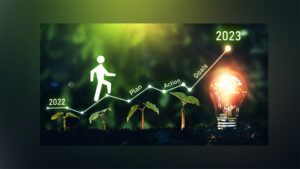Cathrine De Coninck-Lopez, global head of ESG at Invesco.
Reflecting on what has been a tumultuous year for ESG and markets in general, what has been your biggest challenge and how have you overcome it?
2022 has highlighted the broader complexities of ESG investing and brought the role of ESG investing into global discourse. The ESG landscape has evolved rapidly, globally and in a very public way. Coupled with lack of clear definitions, varied interpretation of new rules and a spectrum of personal values, it is no wonder that there is widespread confusion around the ESG world.
To address this, we standardised ESG language to enhance clarity while innovating in solutions and data. First, we adopted a firmwide ESG nomenclature, recognising a spectrum of ESG investing objectives and approaches that can be customised to client needs. This is a proprietary internal standard that can be mapped to regulations across regions. We also deepened innovations in ESG strategies through launching a range of thematics including net zero, social progress and smart foods. Finally, these strategies are supported by strengthening our data capabilities including the launch of the ESGCentral tool for portfolio ESG analysis that can facilitate ESG reviews and reporting.
Please provide one prediction for the ESG investment world for 2023.
While much of ESG investing has been focused on climate mitigation previously, 2023 will see a broadening of focus into adaptation and transition plans.
Climate adaptation refers to the ability of people and nature to adapt to climate risks. The most immediate issue is that of physical risks. Focusing on habitat protection, flood and drought management, water and energy conservation, and retrofitting properties for changing weather conditions, amongst other actions, are needed in a changing world. In 2022, adaptation finance only represented around 10% of issued green bond universe but this could grow significantly with particular emphasis on use of proceeds for emerging markets.
For companies, we are closely watching the Transition Plan Taskforce, which was launched during COP27 in November 2022. The taskforce is in consultation until February 2023, but we have already seen companies issuing their versions of transition plans and expect more reports coming out in 2023.

